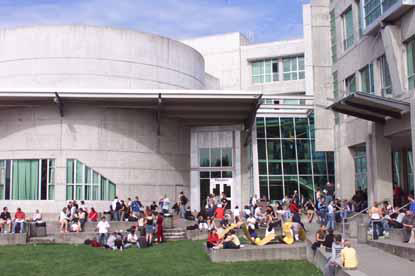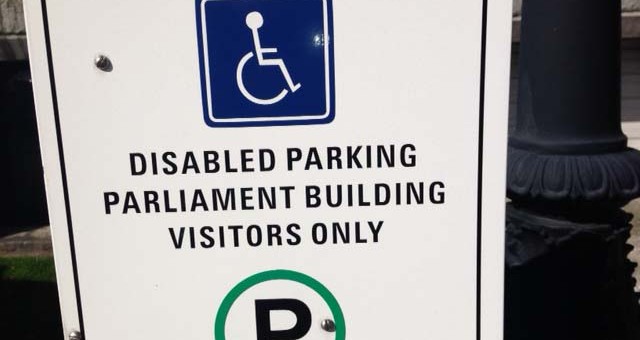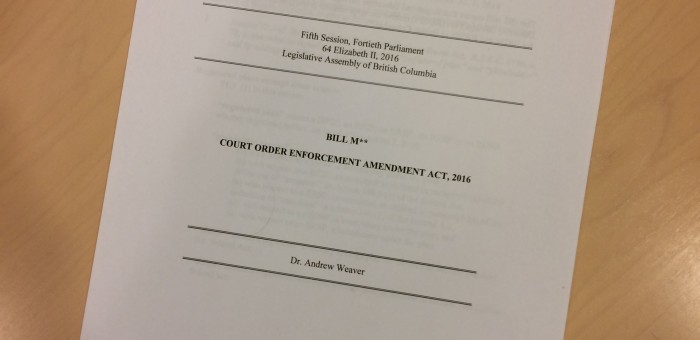Premier pledges to work with Andrew Weaver to pass Post-Secondary Sexual Violence Policies Act
Media Release: March 16, 2016
Premier pledges to work with Andrew Weaver to pass Post-Secondary Sexual Violence Policies Act
For Immediate Release
Victoria B.C. – In response to a question from Andrew Weaver, Leader of the B.C. Green Party and MLA for Oak Bay-Gordon Head, the Premier pledged that her government would pass his Private Member’s Bill, or develop comparable legislation to address the prevalence of sexual assaults on post-secondary campuses.
“This is a strong statement from the Premier and her government that they acknowledge the importance of this issue,” says Weaver. “Most importantly, the Premier acknowledged the urgency with which we must act on this issue and has committed to work with me to bring forward legislation in a timely manner.”
“I am thrilled by the Premier’s response and welcome the opportunity to work with her, and with students across the Province, to ensure campuses become safer places,” notes Weaver. “Sexualized violence affects everyone in our communities, regardless of gender identity.”
Andrew Weaver tabled the Post-Secondary Sexual Violence Policies Act, 2016 last Tuesday. The Bill, if passed, would create a legal responsibility for every University and College in B.C. to develop and maintain policies that would provide education for students, support for survivors and would work to prevent the occurrences of sexual assault on campuses.
There have been several highly publicized incidents in the news lately. When a student at Thompson Rivers University was sexually assaulted twice in one term she was told ‘Maybe you would be better suited to a different school.’ UBC made headlines last year when it turned out that their reported cases of sexual assault on campus were less than a quarter of those reported by the UBC RCMP detachment. Earlier this week it was reported that a UVic student felt ‘completely invalidated and silenced’ by a UVic investigation into her sexual assault.
“We can’t know the actual scale of the problem unless we have post-secondary institutions honestly reporting about it,” says Weaver. “Based on the little data available, and the widespread culture of under reporting that exists, any post-secondary institution that takes this issue on seriously would likely see their reported assaults far exceed other institutions. No public institution wants to have that negative attention; they want to be seen as safe places for students to study.”
“A legislated approach is required to ensure best practices and consistent standards are met, while establishing a clear legal responsibility for post-secondary institutions to maintain these policies,” said Weaver. “I want to thank the Premier for her willingness to make this important issue a priority”.
– 30 –
Media Contact
Mat Wright – Press Secretary Andrew Weaver MLA
1 250 216 3382
mat.wright@leg.bc.ca
A Private Members Bill to Protect RDSPs and RESPs from Creditors
Today in the legislature I introduced a private members Bill M208 – Court Order Enforcement Amendment Act, 2016. The bill adds Registered Disability Savings Plans (RDSPs) and Registered Education Savings Plans (RESPs) to the list of plans protected under the act.
If a person files for bankruptcy in B.C., their RRSPs are protected from being seized by creditors. However, the same protection does not exist for RESPs or for RDSPs. A child should not have their education investment seized due to misfortune that befalls their parents. Alberta has protected RESPs; we should follow suit.
I asked the Minister of Justice about this problem in question period two years ago. At the time, the Minister said that it was an important issue and that she’d be glad to work with me to move it forward. Yet two years have now passed and still nothing has changed. Seeing as I haven’t seen any meaningful progress from the government on this simple legislative change, I decided to offer them a possible solution.
Text of Bill Introduction
A. Weaver: I move a bill, intituled Court Order Enforcement Amendment Act, 2016, of which notice has been given in my name on the order paper, be introduced and read a first time now.
Motion approved.
A.Weaver: Registered Retirement Savings Plans (known as RRSPs) were first introduced federally in 1957. Legislation enabling Registered Retirement Income Funds (known as RRIFs) was subsequently brought forward in the late 1970’s.
RRSPs and RRIFs are protected in this, and most other provinces, from creditors in the case of personal bankruptcy. Protecting these funds provides a glimmer of hope that individuals undergoing bankruptcy will not be destitute in their old age.
In 2008 Federal legislation was passed to allow for the creation of Registered Disability Savings Plans (RDSPs). The RDSP is a federal, tax-deferred, long-term savings plan for people with disabilities who want to save for the future.
Unfortunately, under our outdated Court Order Enforcement Act, 1996, RDSPs are not listed as a registered plan in BC’s legislation and are therefore not exempt from creditor protection. Should an individual with an RDSP go into debt, their savings in the RDSP will not be protected from seizure. The same is true for Registered Education Savings Plans (known as RESPs).
Recognizing that a child should not have their education investment seized due to a misfortune that befalls their parents, the Alberta government also passed legislation two years ago protecting from creditors.
This Bill amends the Court Order Enforcement Amendment Act to ensure that RESPs and RDSPs are protected by law from creditors.
I move that the bill be placed on the orders of the day for second reading at the next sitting of the House after today.
Motion approved.
BILL M208, Court Order Enforcement Amendment Act, 2016, introduced, read a first time and ordered to be placed on orders of the day for second reading at the next sitting of the House after today.
Video of Bill Introduction
Protecting disability and education savings plans needs to happen
Media Release: March 15, 2016
Andrew Weaver – Protecting disability and education savings plans needs to happen
For Immediate Release
Victoria B.C. – Andrew Weaver, Leader of the B.C. Green Party and MLA for Oak Bay-Gordon Head, says the changes he proposes in protecting RESPs and RDSPs from creditors are needed in British Columbia.
“I asked the Minister of Justice about this problem in question period two years ago,” says Weaver. “At the time, the Minister said that it was an important issue and that she’d be glad to work with me to move it forward. Yet two years have now passed and still nothing has changed.”
Today Weaver introduced a private member’s bill intituled “Court Order Enforcement Amendment Act”. The bill would add Registered Disability Savings Plans (RDSPs) and Registered Education Savings Plans (RESPs) to the list of plans protected under the act.
Registered Retirement Savings Plans (RRSPs) and Registered Retirement Income Funds (RRIFs) are already protected in BC and most other provinces from creditors in the case of personal bankruptcy. Such protection provides a glimmer of hope that individuals undergoing bankruptcy will not be destitute in their old age.
“If a person files for bankruptcy in B.C., their RRSPs are protected from being seized by creditors,” says Weaver. “However, the same protection does not exist for RESPs or for RDSPs. A child should not have their education investment seized due to misfortune that befalls their parents. Alberta has protected RESPs; we should follow suit.”
“I’ve waited for action on this issue for two years. I haven’t seen any meaningful progress from the government on this simple legislative change, so that’s why I’m proposing it today. My hope is that they finally act on it.”
– 30 –
Media Contact
Mat Wright – Press Secretary Andrew Weaver MLA
1 250 216 3382
mat.wright@leg.bc.ca
Bill 17 — Local Elections Campaign Financing (Election Expenses) Amendment Act
Today in the legislature I rose at second reading to speak to Bill 17 — Local elections Campaign Financing (Election Expenses) Amendment Act, 2016. The purposed of this bill is to enable expense limits for local government elections, although the actual expense limits are left to regulations.
As you will see in the text and video of my speech (reproduced below), there are both positive and negative aspects of this bill. The fact that fixed spending limits during the campaign period are being introduced is a very good thing in my view. Unfortunately, union and corporate donations still are not being banned. Unfortunately, there is still no single contribution limit. And unfortunately, there will be a free-for-all period outside of the 28 day campaign period where restrictions on spending will not exist.
I have an amendment on the order papers to extend the 28-day campaign period and my colleague, Vicki Huntington from Delta South has proposed an amendment that effectively bans union and corporate donations.
Text of my Speech
A. Weaver: I rise to speak at second reading to Bill 17, Local Elections Campaign Financing (Election Expenses) Amendment Act, 2016.
This bill is being brought forward as the second in two bills with respect to local elections campaign financing and reform. This second bill is a result of…. It has been brought together based on recommendations from the Special Committee on Local Elections Expense Limits, a committee that extensively consulted with numerous stakeholders with respect to local elections campaign financing.
Now, as we all know, consultation is a very important component of building social licence for any bill. But consultation is more than listening. It’s about reacting to that which you’ve been told in a way that reflects what you’ve been told. While much of this bill has done that, there are some glaring omissions, which I’ll come to shortly. The omissions are respect to the continued allowance of corporate and union donors, as well as the fact that there are no caps on the magnitude of individual donations. And the reduction of the campaign period to 28 days thereby allows, essentially, free-for-all spending by any person, any corporation or any union for anyone prior to the campaign period.
With that said, there are, as in all bills, some key points that I support and some other key points that I have some troubles with. Let’s first start with the summary of aspects of this bills that I can support — aspects of this bill that were done extensively through consultation and research as to what’s happening in other jurisdictions.
First and foremost, while the recommendations from the committee are consistent with the recommendations that government stated it would do in the fall, we are being asked to trust government, because everything is put in regulations.
Now, this is becoming a bit of a pattern with this government. We have some enabling legislation which, essentially, kicks the can down the road so that regulations can be put in place that we’re not actually able to debate here.
We’re told in the draft legislation that was released in the fall and the accompanying press release — consistent with the recommendations from the Special Committee on Local Elections Expense Limits — that for candidates in election areas with less than 10,000 people, the proposed expense limits established a flat rate of $10,000 for mayoral candidates and $5,000 for all other locally elected offices. For election areas with more than 10,000 people, a per-capita formula determines expense limits.
Expense limits for candidates in electoral organizations would apply from January 1 of the election year to the election day, the third Saturday of October. I’ll come back to that.
Proposed expense limits for third-party advertising sponsors would be 5 percent of the expense limit of a candidate in the local election area, with a cumulative provincewide maximum of $150,000, applicable during a 28-day campaign period.
For elections with more than 10,000 people, mayoral candidates would have an expense limit that’s graduated — a dollar per capita for the first 15,000, 55 cents per capita for a 15,000 to 150,000 population, 60 cents per capita for a population between 150,000 and 250,000 and 15 cents per capita thereafter. For election areas with more than 10,000 people, candidates for all other locally elected offices would have an expense limit of 50 cents per capita for the first 15,000 population, 28 cents per capita for a 15,000 to 150,000 population, 30 cents per capita for a population between 150,000 and 250,000 and eight cents per capita thereafter — essentially, half the amount allowable for mayoral candidates.
Now, these numbers are justifiable — the committee that brought forward these recommendations did extensive research on what was going on in other jurisdictions — and will, in essence, eliminate, to some extent, the ability of those who have access to the greatest amount of money to necessarily win an election by blanketing airwaves, etc., with their advertising and so forth.
Again, we are being asked to trust government that, in fact, this is what will happen through regulations. It’s not clear to me that this government continues to earn our trust in light of the fact and the preponderance of promises and other things that we’ve been told over the years — that we should trust them, that they will take care of. Trust them about LNG — still waiting. Trust them about this. Trust them about that. I wait to see these regulations and certainly hope that they roll out in accordance with the guidelines that have been given to us already.
There are a number of aspects — again, coming back to some of the things that I believe are steps forward — that are good steps forward. For example, there’s an elimination on social media — a ban on tweets, Internet communications, Facebook, etc. — on election day, provided it solely encourages people to vote. I think that’s a good change. It’s essentially recognizing modern-day forms of communication, and it’s timely that we introduce this here.
The fact that expense limits are being introduced, overall, is a good change. Again, we’re kicking it down to the regulations and hoping that at some point these regulations will address the concerns expressed by people through the consultations with the special committee on local election finance expense limits.
Let’s come back to the two big failings of this bill, the lost opportunities within this bill. It’s a continued lost opportunity extending from the previous version of the local election campaign financing bill that we discussed a while back here in the Legislature. It is the continued ability for unions and corporations to influence the outcomes of elections through essentially unmitigated campaign donation limits that can be as high as anybody wants.
Unions don’t vote. Corporations don’t vote. People vote. It is the people who vote to put people into this Legislature, who put people into local governments, who put people into local school boards, who put people in Ottawa in the federal government. Yet we are being asked here, once again, to approve a bill that allows unions and corporations to determine who is in local government.
Now, I know that the official opposition supports the notion of not allowing union and corporate donations, both provincially and in local government elections, but we continue to allow this to happen. What’s so troubling about this is you’re then left with the question: whose interests are being represented?
My very favourite example of this is the incident that happened at Mount Polley. Now, when we look at Mount Polley, we recognize that there was a potential for a lot bigger problem than actually occurred. Still, it was certainly a big enough issue to cause local environmental concern, and we still don’t know if there are long-term ramifications from the pond tailings breach.
Part of the problem with the communication is this. When we look at the owner of that company that’s running Mount Polley, we recognize that they’re substantive donors to the B.C. Liberals. Then, on the other hand, when we look at the union that represents the workers who work at Mount Polley, the United Steelworkers, they’re substantial donors to the B.C. NDP. So the public, the people of B.C., can wonder whose interests are being represented. Is it their interests? Is it the interests of the workers at the mine? Is it the interests of the corporation at the mine?
I’m not suggesting that there was undue influence arising from this, but there’s a perception that is very, very difficult to move away from. When big donors to both sides of this House come from both sides of an issue, we have to question whose interests are being represented.
Now, in the case of local government, the same thing can happen. Let’s take an example of something that’s been in the news quite a lot of late, the Trans Mountain Pipeline proposal. We know that there are certain individuals, certain corporations, who would be more predisposed to see that go through, and there are others who might not. You might find, for example, a corporation that wants this proposal to go through and decides to fund a bunch of candidates with a huge amount of money prior to 28 days before the election. You might find, for example, another corporation might decide that they don’t want this and fund the other candidates. I suspect that the other candidates would get far less than the first candidates. But then we have a battle of election with money influencing the political discourse, not in the interests of the people but in the interests of the stakeholders of a project, and this is wrong.
This is absolutely wrong and points to the real problem in our democracy in British Columbia: we have a government that no longer represents the people. We have a government that puts its corporate friends first and thinks about the people second — whether that be resident hunters, as I look at the minister over there, whether it be the people in Shawnigan Lake, as I look at the minister over there. Regardless of the issue, this is a government that’s putting vested corporate interests first, people second.
What it’s saying, through this missed opportunity, to our local elections, to school board elections, is that we are encouraging you to do the same.
Why is it that in B.C. we allow the B.C. Teachers Federation to donate to the campaigns of trustees? This should not be allowed because school trustees are there to look out for the public good. They’re not there to impose the will of the BCTF. It should not be allowed, but it is allowed under this legislation. We should not allow an oil company to be able to influence school board elections through campaigning, but it is allowed under here. Why are we doing this?
Our democracy is broken, and this government is missing out an opportunity to fix it. One of the things you’ll see in the order papers, is that I proposed an amendment. This amendment is to actually address one of the recommendations of the local elections committee, which says as follows. On page 33 of this document, under the “Elections proceedings period,” it states this:
“The committee received notice from government late in the process of its work of a proposed change to the local elections campaign period from 46 days to 28 days. Committee members expressed concern that the 2014 expenditure data included all spending from January 1 until election day and, therefore, the committee’s recommendations were based on the analysis of a longer campaign period.
“One concern is that candidates may make purchases of election materials such as flyers or advertising materials and use these materials prior to a 28-day period and not have this captured as an expense. Committee members agreed that in order for expense limits to be effective, they must apply to all campaign spending.”
They concluded that the local expense limits, recommended by the committee for electoral organizations and candidates, should apply from January 1 of the election year to election day.
I heard from members opposite that they consulted. Indeed they did, but coming back to my first point: consultation is not just sitting and listening; it’s about reacting to what you heard in a manner that’s consistent to what you heard and that puts all together the various issues that are raised before you.
This is a very specific recommendation from a committee — very specific — yet it is ignored. I just do not understand why it is ignored. Why would government ignore this? Why would it ignore its own committee that it has majority vote on? Why would it do that? I don’t know. I’m certainly hoping we will get more information on this as we move forward.
In summary, while it’s long overdue for us to reform our electoral financing expenses in British Columbia and while there are aspects of this bill that of course I can support, this is a lost opportunity.
It continues to allow corporations and unions to donate. I do recognize the member for Delta South has introduced a rather innovative amendment at committee stage.
Two, it doesn’t preclude somebody from funding an entire campaign for an individual. You could have, say, the city of Vancouver — one group funded almost entirely by one individual. That still could happen.
Three, it allows people to avoid campaign spending limits because of the short 28-day campaign period time that was introduced, despite the recommendation of the committee.
Four, this bill is asking us, once more, to trust the government. “Trust us that we will introduce regulations, because we know what’s best for you.” We don’t see the information here in the bill. It’s kicked down the road for some time in the future.
Frankly, I no longer trust this government. British Columbians no longer trust this government. I would have preferred to see these numbers actually in the legislation so that we know what we’re voting for, instead of giving them carte blanche to continue to do what they’re doing, to put their corporate interests ahead of the interests of British Columbians.
Video of my Speech
Bill M205: Post-Secondary Sexual Violence Policies Act
Today in the legislature I introduced Bill M205: Post-Secondary Sexual Violence Policies Act. This bill, based on similar legislation in Ontario, aims to address the pervasive occurrence of sexualized violence plaguing universities, colleges and other post-secondary institutions in British Columbia. It creates a legal responsibility for them to develop and maintain policies that would work to prevent the occurrences of sexual violence and provide support for victims. The act would allow university- and college-specific policies to be developed that would meet the needs of students, including education and protection, while working to create a safe environment for all students to come forward to report a sexual assault.
The preponderance of sexualized violence on the campuses of post-secondary institutions affects all of us. It’s time for our government to stand up and say that enough is enough. With your support and collective voice we will be able to improve the safety of post-secondary experiences for everyone.
Below is the text and video of my introduction of the bill. If needed, the contact information for sexual assault support and crisis centers throughout British Columbia are also listed below.
Text of Bill Introduction
BILL M205 — POST-SECONDARY SEXUAL
VIOLENCE POLICIES ACT, 2016
A. Weaver: I move introduction of a bill intituled Post-Secondary Sexual Violence Policies Act, 2016.
Motion approved.
A. Weaver: It is estimated that one in four female university students will be sexually assaulted during the relatively short amount of time they spend on campus.
If that number seems startling, then keep in mind that when the University of Ottawa recently did a student survey on the issue, 44 percent of female students experienced some form of sexual violence or unwanted sexual touching. Within our province, we’ve heard of numerous assaults that have taken place over the last few weeks, with a variety of different responses.
It is with this in mind that I introduce the Post-Secondary Sexual Violence Policies Act. This bill requires colleges and universities to have sexual violence policies that set out the process that will apply when incidents and complaints of sexual violence are reported. It is critical that we establish a legal requirement for our post-secondary institutions to have sexual violence policies that educate, protect and support our students. This legislation would actively involve students in the development of these policies and ensure that universities are adequately reporting and responding to incidences of sexual assault.
I move that this bill be placed on the orders of the day for second reading at the next sitting of the House after today.
Bill M205, Post-Secondary Sexual Violence Policies Act, 2016, introduced, read a first time and ordered to be placed on orders of the day for second reading at the next sitting of the House after today.
Video of my introduction of the bill in the legislature today.
Video of Bill Introduction
Online and Phone-in Resources
- VictimLinkBC is a toll-free, confidential, multilingual multilingual telephone service available across B.C. and the Yukon 24 hours a day, 7 days a week. It provides information and referral services to all victims of crime and immediate crisis support to victims of family and sexual violence, including victims of human trafficking exploited for labour or sexual services, 1-800-563-0808
- 24 hour sexual assault crisis and information line, based in Victoria, 250–383-3232
- Qmunity Resource Centre provides counselling, resources, programs and peer support to the lesbian, gay, transgender, bisexual communities. (604) 684-5307.
- Youth In BC, provides an online chat program to connect victims with support. Available noon to 1am in BC and the Yukon.
City Specific Support and Crisis Centers
Victoria Sexual Assault Centre
3060 Cedar Hill Road #201
(250) 383-3232
http://vsac.ca/
Kamloops Sexual Assault Counselling Center
235 First Avenue #601
(250) 372-0179
http://www.ksacc.ca/
Women Against Violence Against Women
Vancouver, BC V6J 5C2
(604) 255-6344
http://www.wavaw.ca/
B C Society for Male Survivors of Sexual Abuse
3126 W Broadway
(604) 682-6482
http://bc-malesurvivors.com/
Prince George Sexual Assault Centre
5130N Nechako Rd.
(250) 564-8302
https://clbc.cioc.ca/record/CLB0654
SOS Society
Prince George, 193 Quebec St
(250) 564-8302
http://www.sossociety.net/







